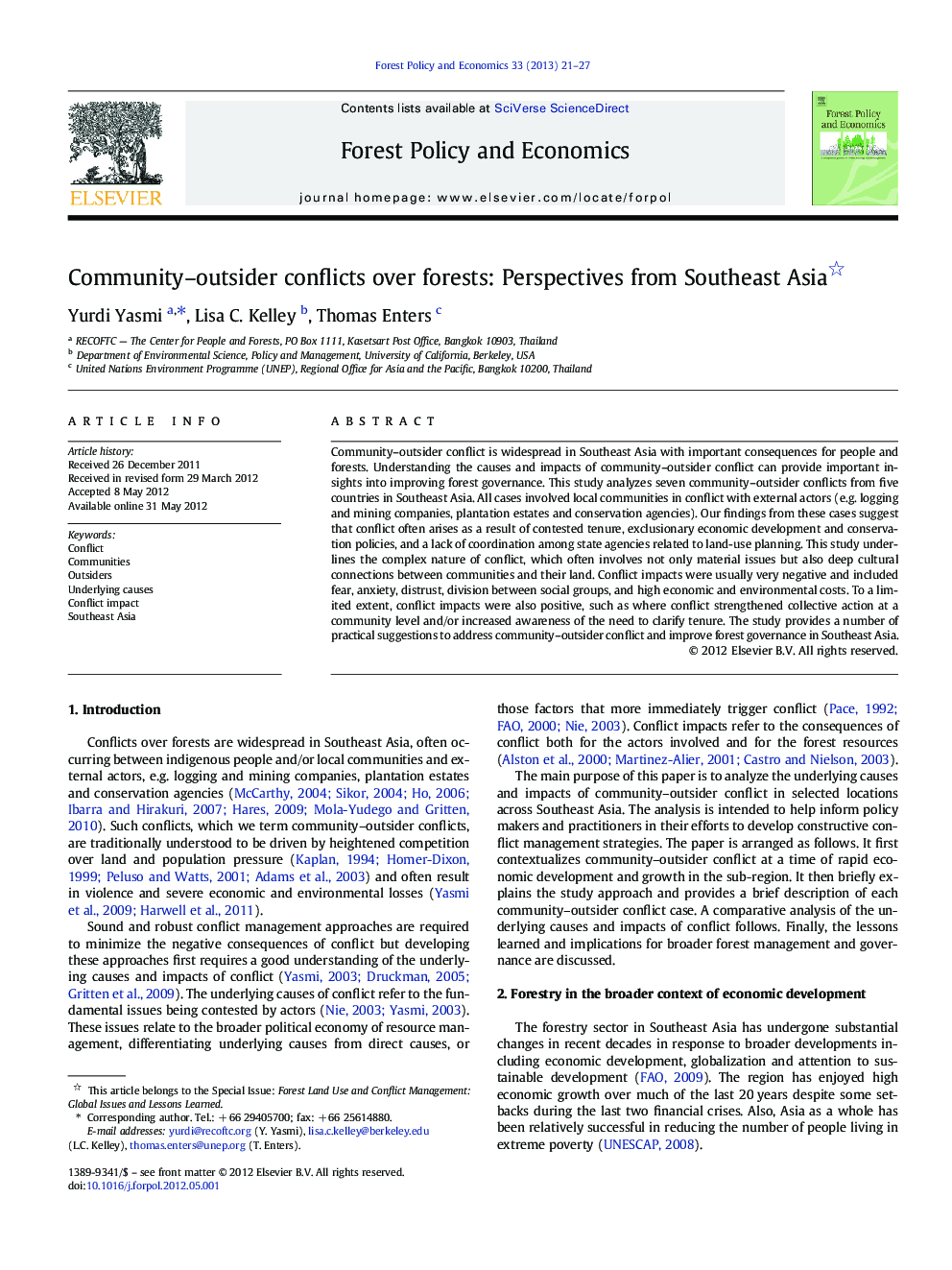| Article ID | Journal | Published Year | Pages | File Type |
|---|---|---|---|---|
| 6545046 | Forest Policy and Economics | 2013 | 7 Pages |
Abstract
Community-outsider conflict is widespread in Southeast Asia with important consequences for people and forests. Understanding the causes and impacts of community-outsider conflict can provide important insights into improving forest governance. This study analyzes seven community-outsider conflicts from five countries in Southeast Asia. All cases involved local communities in conflict with external actors (e.g. logging and mining companies, plantation estates and conservation agencies). Our findings from these cases suggest that conflict often arises as a result of contested tenure, exclusionary economic development and conservation policies, and a lack of coordination among state agencies related to land-use planning. This study underlines the complex nature of conflict, which often involves not only material issues but also deep cultural connections between communities and their land. Conflict impacts were usually very negative and included fear, anxiety, distrust, division between social groups, and high economic and environmental costs. To a limited extent, conflict impacts were also positive, such as where conflict strengthened collective action at a community level and/or increased awareness of the need to clarify tenure. The study provides a number of practical suggestions to address community-outsider conflict and improve forest governance in Southeast Asia.
Related Topics
Life Sciences
Agricultural and Biological Sciences
Forestry
Authors
Yurdi Yasmi, Lisa C. Kelley, Thomas Enters,
